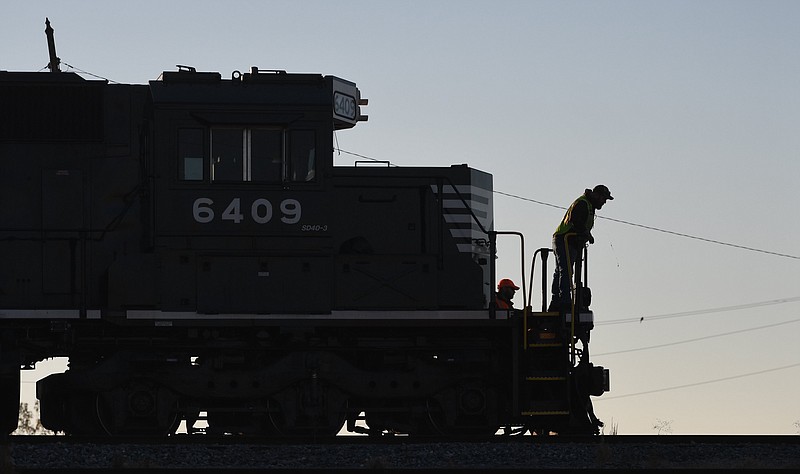Democratic and Republican leaders in Congress vowed Tuesday to pass legislation averting a nationwide rail strike, saying they agree with President Joe Biden that a work stoppage just days before Christmas would disrupt shipping and deal a devastating blow to the nation's economy.
House Speaker Nancy Pelosi and Sen. Chuck Schumer of New York, the Democratic leader, said after a meeting at the White House with Biden and their Republican counterparts that they would act quickly to move legislation through the chambers.
"Tomorrow morning we will have a bill on the floor," Pelosi said. "I don't like going against the ability of unions to strike, but weighing the equities, we must avoid a strike. Jobs will be lost. Even union jobs will be lost."
Sen. Mitch McConnell of Kentucky, the minority leader, told reporters after the meeting that "we're going to need to pass a bill" to avert a railway strike, suggesting that Republicans did not intend to try to block such a move.
During his meeting with congressional leaders Tuesday morning, Biden acknowledged that it was "not an easy call" for Congress to intervene, but he said it was necessary because the economy was "at risk" in the labor dispute.
Biden's request that Congress step in underscores the recognition that a rail strike could have a devastating effect on the fragile economic recovery after the coronavirus pandemic. Frozen train lines would snap supply chains for commodities such as lumber, coal and chemicals and delay deliveries of automobiles and other consumer goods, driving up prices even further.
Congress has the authority to intervene in a variety of ways, including by enacting a deal directly through legislation -- whether it was the agreement that some unions already have voted down, or a less generous proposal that a presidential board issued over the summer.
Pelosi said that House members would vote on the tentative agreement that Biden's administration helped negotiate between rail companies and the unions earlier this year. Eight unions voted to support that agreement, but four did not, keeping alive the threat of a strike.
Rep. Kevin McCarthy of California, the House minority leader, said after Tuesday's meeting that "I think it will pass."
Schumer said that he was optimistic the Senate would vote quickly to do the same.
